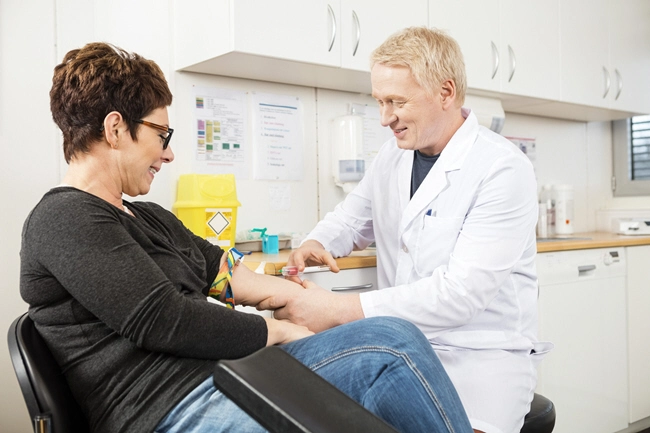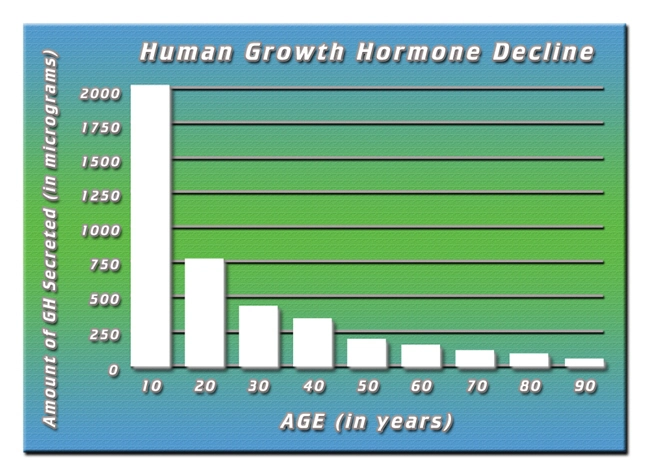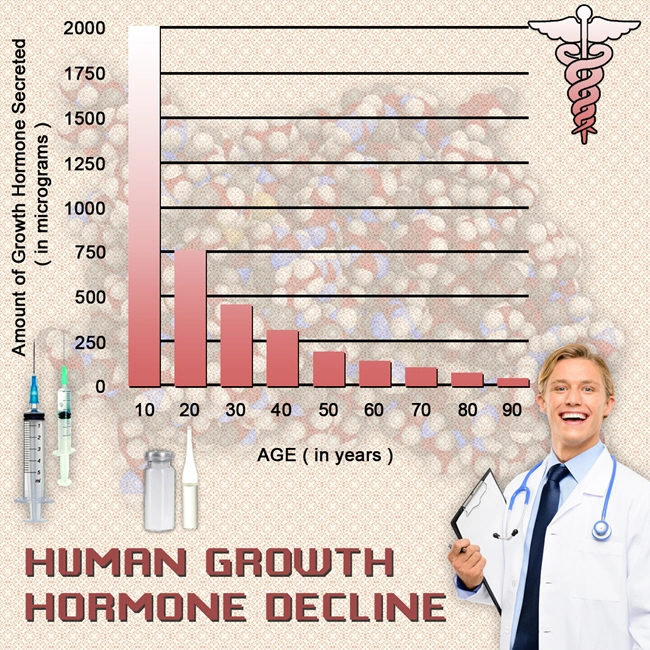
Introduction
Secondary hypogonadism, a condition characterized by low testosterone levels due to dysfunctions in the hypothalamus or pituitary gland, has been increasingly recognized as a significant health concern among American men. Recent research has begun to explore the intricate relationship between sleep disorders and this form of hypogonadism, shedding light on potential pathways and implications for treatment and management.
The Prevalence of Sleep Disorders
Sleep disorders, such as obstructive sleep apnea (OSA) and insomnia, are prevalent among American men. According to the American Academy of Sleep Medicine, approximately 25% of men suffer from OSA, a condition where breathing repeatedly stops and starts during sleep. Insomnia, characterized by difficulty falling or staying asleep, affects about 10% of adults. These disorders not only impair quality of life but also have systemic effects on health, including hormonal imbalances.
Mechanisms Linking Sleep Disorders to Secondary Hypogonadism
The mechanisms by which sleep disorders contribute to secondary hypogonadism are multifaceted. One primary pathway involves the disruption of the sleep-wake cycle, which can lead to alterations in the secretion patterns of gonadotropin-releasing hormone (GnRH). GnRH is crucial for stimulating the pituitary gland to release luteinizing hormone (LH) and follicle-stimulating hormone (FSH), which in turn regulate testosterone production. Disrupted sleep can lead to decreased GnRH pulsatility, resulting in lower LH and FSH levels, and consequently, reduced testosterone production.
Additionally, sleep disorders can lead to increased levels of stress hormones such as cortisol. Elevated cortisol levels can inhibit the hypothalamic-pituitary-gonadal (HPG) axis, further contributing to hypogonadism. Chronic sleep deprivation also leads to increased inflammation and oxidative stress, which can impair testicular function and testosterone synthesis.
Clinical Evidence and Studies
Several studies have provided clinical evidence supporting the link between sleep disorders and secondary hypogonadism. A study published in the *Journal of Clinical Endocrinology & Metabolism* found that men with OSA had significantly lower testosterone levels compared to those without the disorder. Another study in *Sleep Medicine Reviews* highlighted that treating OSA with continuous positive airway pressure (CPAP) therapy could improve testosterone levels, suggesting a reversible component to the hypogonadism associated with sleep disorders.
Implications for Diagnosis and Treatment
The recognition of sleep disorders as a potential cause of secondary hypogonadism has significant implications for diagnosis and treatment. Clinicians should consider screening for sleep disorders in men presenting with symptoms of hypogonadism, such as decreased libido, fatigue, and mood changes. Polysomnography, the gold standard for diagnosing sleep disorders, may be warranted in these cases.
Treatment strategies should be multifaceted, addressing both the sleep disorder and the resulting hypogonadism. For instance, effective management of OSA with CPAP therapy can lead to improvements in testosterone levels. In cases where testosterone replacement therapy (TRT) is considered, addressing underlying sleep issues may enhance the efficacy of TRT and potentially reduce the need for long-term hormonal supplementation.
Conclusion
The relationship between sleep disorders and secondary hypogonadism among American men is a critical area of research that underscores the importance of holistic health management. By understanding and addressing the underlying sleep issues, healthcare providers can improve outcomes for men suffering from hypogonadism. As research continues to evolve, it is imperative that clinical practice adapts to incorporate these findings, ensuring comprehensive care for affected individuals.
Contact Us Today For A Free Consultation
Dear Patient,
Once you have completing the above contact form, for security purposes and confirmation, please confirm your information by calling us.
Please call now: 1-800-380-5339.
Welcoming You To Our Clinic, Professor Tom Henderson.

- Secondary Hypogonadism in American Men: Cardiovascular Risks and Management Strategies [Last Updated On: February 26th, 2025] [Originally Added On: February 26th, 2025]
- Secondary Hypogonadism: Impacts on Cognitive Function and Treatment Options in American Men [Last Updated On: March 18th, 2025] [Originally Added On: March 18th, 2025]
- Secondary Hypogonadism: Understanding Its Impact on Sleep and Health in American Men [Last Updated On: March 18th, 2025] [Originally Added On: March 18th, 2025]
- Stress-Induced Secondary Hypogonadism in American Males: Causes and Management Strategies [Last Updated On: March 18th, 2025] [Originally Added On: March 18th, 2025]
- Secondary Hypogonadism: Symptoms, Diagnosis, and Management Strategies for American Men [Last Updated On: March 18th, 2025] [Originally Added On: March 18th, 2025]
- Secondary Hypogonadism: Understanding Its Profound Psychological Impacts on American Men [Last Updated On: March 19th, 2025] [Originally Added On: March 19th, 2025]
- Genetic Insights into Secondary Hypogonadism in American Males: Diagnosis and Treatment [Last Updated On: March 19th, 2025] [Originally Added On: March 19th, 2025]
- Secondary Hypogonadism in American Males: Impact on Energy and Treatment Options [Last Updated On: March 20th, 2025] [Originally Added On: March 20th, 2025]
- Secondary Hypogonadism and Prostate Health: Impacts, Diagnosis, and Management Strategies [Last Updated On: March 21st, 2025] [Originally Added On: March 21st, 2025]
- Support Systems Crucial for Managing Secondary Hypogonadism in American Men [Last Updated On: March 21st, 2025] [Originally Added On: March 21st, 2025]
- Secondary Hypogonadism and Hair Loss: Causes, Diagnosis, and Treatment for American Males [Last Updated On: March 21st, 2025] [Originally Added On: March 21st, 2025]
- Secondary Hypogonadism: Impacts on Body Composition and Health in American Men [Last Updated On: March 22nd, 2025] [Originally Added On: March 22nd, 2025]
- Exercise Strategies for Managing Secondary Hypogonadism in American Males [Last Updated On: March 22nd, 2025] [Originally Added On: March 22nd, 2025]
- Secondary Hypogonadism in American Males: Pituitary Gland's Role and Treatment Options [Last Updated On: March 22nd, 2025] [Originally Added On: March 22nd, 2025]
- Alternative Therapies for Secondary Hypogonadism: A Comprehensive Guide for American Men [Last Updated On: March 22nd, 2025] [Originally Added On: March 22nd, 2025]
- Secondary Hypogonadism and Anemia: Understanding and Managing the Connection in American Males [Last Updated On: March 22nd, 2025] [Originally Added On: March 22nd, 2025]
- Secondary Hypogonadism's Impact on Immune Function in American Men [Last Updated On: March 23rd, 2025] [Originally Added On: March 23rd, 2025]
- Secondary Hypogonadism's Impact on Skin Health in American Men: Causes and Management [Last Updated On: March 23rd, 2025] [Originally Added On: March 23rd, 2025]
- Environmental Factors Driving Secondary Hypogonadism in American Men: A Comprehensive Analysis [Last Updated On: March 23rd, 2025] [Originally Added On: March 23rd, 2025]
- Secondary Hypogonadism: Impacts on Health and Importance of Early Detection in American Men [Last Updated On: March 24th, 2025] [Originally Added On: March 24th, 2025]
- Secondary Hypogonadism's Impact on Kidney Function: Symptoms, Diagnosis, and Management [Last Updated On: March 24th, 2025] [Originally Added On: March 24th, 2025]
- Nutrition's Role in Managing Secondary Hypogonadism in American Males [Last Updated On: March 24th, 2025] [Originally Added On: March 24th, 2025]
- Understanding Secondary Hypogonadism: Causes, Symptoms, and Treatment in American Males [Last Updated On: March 24th, 2025] [Originally Added On: March 24th, 2025]
- Secondary Hypogonadism and Mood Disorders in American Men: Links and Management Strategies [Last Updated On: March 25th, 2025] [Originally Added On: March 25th, 2025]
- Secondary Hypogonadism and Diabetes: Impact and Management in American Males [Last Updated On: March 25th, 2025] [Originally Added On: March 25th, 2025]
- Thyroid Function's Impact on Secondary Hypogonadism in American Males: Diagnosis and Management [Last Updated On: March 25th, 2025] [Originally Added On: March 25th, 2025]
- Understanding Secondary Hypogonadism: Symptoms, Diagnosis, and Management in American Males [Last Updated On: March 25th, 2025] [Originally Added On: March 25th, 2025]
- Secondary Hypogonadism: Impacts and Management Strategies for American Men's Quality of Life [Last Updated On: March 25th, 2025] [Originally Added On: March 25th, 2025]
- Managing Fatigue in American Males with Secondary Hypogonadism: Causes and Strategies [Last Updated On: March 26th, 2025] [Originally Added On: March 26th, 2025]
- Understanding and Managing Secondary Hypogonadism in American Males: Symptoms, Causes, and Treatments [Last Updated On: March 26th, 2025] [Originally Added On: March 26th, 2025]
- Secondary Hypogonadism in American Males: Lifestyle Factors and Medical Interventions [Last Updated On: March 26th, 2025] [Originally Added On: March 26th, 2025]
- Secondary Hypogonadism: Impact on Libido and Treatment Options for American Males [Last Updated On: March 26th, 2025] [Originally Added On: March 26th, 2025]
- Secondary Hypogonadism and Liver Health: A Critical Connection for American Males [Last Updated On: March 26th, 2025] [Originally Added On: March 26th, 2025]
- Secondary Hypogonadism: Causes, Diagnosis, and Management for American Males [Last Updated On: March 26th, 2025] [Originally Added On: March 26th, 2025]
- Secondary Hypogonadism's Impact on Fat Distribution in American Men [Last Updated On: March 26th, 2025] [Originally Added On: March 26th, 2025]
- Managing Secondary Hypogonadism: Stress, Nutrition, and Holistic Approaches for American Males [Last Updated On: March 26th, 2025] [Originally Added On: March 26th, 2025]
- Exercise as a Key Strategy in Managing Secondary Hypogonadism in American Men [Last Updated On: March 27th, 2025] [Originally Added On: March 27th, 2025]
- Secondary Hypogonadism's Impact on Physical Performance in American Men [Last Updated On: March 27th, 2025] [Originally Added On: March 27th, 2025]
- Secondary Hypogonadism: Understanding Causes, Impacts, and Management in American Men [Last Updated On: March 27th, 2025] [Originally Added On: March 27th, 2025]
- Secondary Hypogonadism: Impact on Emotional Health in American Men [Last Updated On: March 27th, 2025] [Originally Added On: March 27th, 2025]
- Secondary Hypogonadism: Impact on Muscle Strength and Treatment in American Men [Last Updated On: March 27th, 2025] [Originally Added On: March 27th, 2025]
- Secondary Hypogonadism's Psychological Impact on American Men: A Comprehensive Overview [Last Updated On: March 27th, 2025] [Originally Added On: March 27th, 2025]
- Secondary Hypogonadism's Impact on Bone Density in American Men: Causes and Management [Last Updated On: March 28th, 2025] [Originally Added On: March 28th, 2025]
- Secondary Hypogonadism and Autoimmune Diseases: Insights and Management in American Men [Last Updated On: March 28th, 2025] [Originally Added On: March 28th, 2025]
- Secondary Hypogonadism: Impacts on American Men's Social Life and Health [Last Updated On: March 28th, 2025] [Originally Added On: March 28th, 2025]
- Secondary Hypogonadism and Cardiovascular Health: Risks and Management Strategies for American Males [Last Updated On: March 28th, 2025] [Originally Added On: March 28th, 2025]
- Secondary Hypogonadism's Impact on Mental Health in American Males: A Comprehensive Overview [Last Updated On: March 28th, 2025] [Originally Added On: March 28th, 2025]
- Secondary Hypogonadism's Impact on Mood in American Men: Causes, Effects, and Management [Last Updated On: March 28th, 2025] [Originally Added On: March 28th, 2025]
- Secondary Hypogonadism: Symptoms, Causes, and Treatment for American Males [Last Updated On: March 28th, 2025] [Originally Added On: March 28th, 2025]
- Secondary Hypogonadism in American Males: Causes, Monitoring, and Management Strategies [Last Updated On: March 30th, 2025] [Originally Added On: March 30th, 2025]
- Secondary Hypogonadism's Impact on Cognitive Function in American Men [Last Updated On: March 30th, 2025] [Originally Added On: March 30th, 2025]
- Understanding Secondary Hypogonadism: Symptoms, Diagnosis, and Hormonal Therapies for American Males [Last Updated On: March 31st, 2025] [Originally Added On: March 31st, 2025]
- Secondary Hypogonadism: Impact on Energy, Vitality, and American Men's Health [Last Updated On: April 2nd, 2025] [Originally Added On: April 2nd, 2025]
- Managing Secondary Hypogonadism: The Role of Diet in Hormonal Health [Last Updated On: April 3rd, 2025] [Originally Added On: April 3rd, 2025]
- Secondary Hypogonadism: Impact on Weight and Management Strategies for American Males [Last Updated On: April 4th, 2025] [Originally Added On: April 4th, 2025]
- Understanding Secondary Hypogonadism: Causes, Symptoms, and Management for American Males [Last Updated On: April 6th, 2025] [Originally Added On: April 6th, 2025]
- Secondary Hypogonadism: Impacts on Men's Health and Relationships in America [Last Updated On: April 7th, 2025] [Originally Added On: April 7th, 2025]
- Sleep's Impact on Secondary Hypogonadism in American Males: A Comprehensive Overview [Last Updated On: April 8th, 2025] [Originally Added On: April 8th, 2025]
- Secondary Hypogonadism's Impact on Emotional Resilience in American Men [Last Updated On: April 8th, 2025] [Originally Added On: April 8th, 2025]
- Community Support Enhances Management of Secondary Hypogonadism in American Men [Last Updated On: April 9th, 2025] [Originally Added On: April 9th, 2025]
- Secondary Hypogonadism in American Males: Holistic Treatment and Management Strategies [Last Updated On: April 9th, 2025] [Originally Added On: April 9th, 2025]
- Secondary Hypogonadism's Impact on Cognitive Function in American Men [Last Updated On: April 10th, 2025] [Originally Added On: April 10th, 2025]
- Secondary Hypogonadism: Impacts and Management for American Men's Daily Life [Last Updated On: April 10th, 2025] [Originally Added On: April 10th, 2025]
- Understanding Secondary Hypogonadism: Symptoms, Causes, and Treatment in American Males [Last Updated On: April 11th, 2025] [Originally Added On: April 11th, 2025]
- Secondary Hypogonadism in American Males: Causes, Symptoms, and Personalized Treatment [Last Updated On: April 12th, 2025] [Originally Added On: April 12th, 2025]
- Secondary Hypogonadism: Impacts on Mental Health and Holistic Management Strategies [Last Updated On: April 12th, 2025] [Originally Added On: April 12th, 2025]
- Managing Secondary Hypogonadism in American Men: A Comprehensive Approach [Last Updated On: April 13th, 2025] [Originally Added On: April 13th, 2025]
- Managing Secondary Hypogonadism: Symptoms, Causes, and Treatment in American Males [Last Updated On: April 15th, 2025] [Originally Added On: April 15th, 2025]
- Secondary Hypogonadism: Emotional Impacts and Comprehensive Management Strategies [Last Updated On: April 16th, 2025] [Originally Added On: April 16th, 2025]
- Managing Secondary Hypogonadism: Importance of Regular Health Check-ups for American Males [Last Updated On: April 16th, 2025] [Originally Added On: April 16th, 2025]
- Secondary Hypogonadism: Impacts on Men's Vitality and Management Strategies [Last Updated On: April 16th, 2025] [Originally Added On: April 16th, 2025]
- Understanding Secondary Hypogonadism: Causes, Symptoms, and Management for American Males [Last Updated On: April 17th, 2025] [Originally Added On: April 17th, 2025]
- Secondary Hypogonadism in American Males: Lifestyle Impact and Management Strategies [Last Updated On: April 17th, 2025] [Originally Added On: April 17th, 2025]
- Secondary Hypogonadism: Symptoms, Causes, and Management in American Males [Last Updated On: April 17th, 2025] [Originally Added On: April 17th, 2025]
- Nutrition's Role in Managing Secondary Hypogonadism: Boosting Testosterone Naturally [Last Updated On: April 19th, 2025] [Originally Added On: April 19th, 2025]
- Secondary Hypogonadism: Impacts on Muscle, Bone, and Cardiovascular Health in American Men [Last Updated On: April 19th, 2025] [Originally Added On: April 19th, 2025]
- Secondary Hypogonadism: Impact on Self-Esteem and Treatment Options for American Men [Last Updated On: April 20th, 2025] [Originally Added On: April 20th, 2025]









